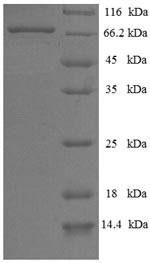Cookie-Einstellungen
Diese Website benutzt Cookies, die für den technischen Betrieb der Website erforderlich sind und stets gesetzt werden. Andere Cookies, die den Komfort bei Benutzung dieser Website erhöhen, der Direktwerbung dienen oder die Interaktion mit anderen Websites und sozialen Netzwerken vereinfachen sollen, werden nur mit Ihrer Zustimmung gesetzt.
Konfiguration
Technisch erforderlich
Diese Cookies sind für die Grundfunktionen des Shops notwendig.
"Alle Cookies ablehnen" Cookie
"Alle Cookies annehmen" Cookie
Ausgewählter Shop
CSRF-Token
Cookie-Einstellungen
FACT-Finder Tracking
Individuelle Preise
Kundenspezifisches Caching
Session
Währungswechsel
Komfortfunktionen
Diese Cookies werden genutzt um das Einkaufserlebnis noch ansprechender zu gestalten, beispielsweise für die Wiedererkennung des Besuchers.
Facebook-Seite in der rechten Blog - Sidebar anzeigen
Merkzettel
Statistik & Tracking
Endgeräteerkennung
Kauf- und Surfverhalten mit Google Tag Manager
Partnerprogramm

Bei Fragen nutzen Sie gerne unser Kontaktformular.
Bestellen Sie auch per E-Mail: info@biomol.com
Größere Menge gewünscht? Bulk-Anfrage
Bestellen Sie auch per E-Mail: info@biomol.com
Größere Menge gewünscht? Bulk-Anfrage
Organism: Homo sapiens (Human). Source: E.coli. Expression Region: 1-465aa. Protein Length: Full... mehr
Produktinformationen "E3 ubiquitin-protein ligase parkin (PRKN), human, recombinant"
Organism: Homo sapiens (Human). Source: E.coli. Expression Region: 1-465aa. Protein Length: Full Length. Tag Info: N-terminal 6xHis-SUMO-tagged. Target Protein Sequence: MIVFVRFNSS HGFPVEVDSD TSIFQLKEVV AKRQGVPADQ LRVIFAGKEL RNDWTVQNCD LDQQSIVHIV QRPWRKGQEM NATGGDDPRN AAGGCEREPQ SLTRVDLSSS VLPGDSVGLA VILHTDSRKD SPPAGSPAGR SIYNSFYVYC KGPCQRVQPG KLRVQCSTCR QATLTLTQGP SCWDDVLIPN RMSGECQSPH CPGTSAEFFF KCGAHPTSDK ETSVALHLIA TNSRNITCIT CTDVRSPVLV FQCNSRHVIC LDCFHLYCVT RLNDRQFVHD PQLGYSLPCV AGCPNSLIKE LHHFRILGEE QYNRYQQYGA EECVLQMGGV LCPRPGCGAG LLPEPDQRKV TCEGGNGLGC GFAFCRECKE AYHEGECSAV FEASGTTTQA YRVDERAAEQ ARWEAASKET IKKTTKPCPR CHVPVEKNGG CMHMKCPQPQ CRLEWCWNCG CEWNRVCMGD HWFDV. Purity: Greater than 90% as determined by SDS-PAGE. Endotoxin: Not test. Biological Activity: n/a. Form: Liquid or Lyophilized powder. Buffer: If the delivery form is liquid, the default storage buffer is Tris/PBS-based buffer, 5%-50% glycerol. If the delivery form is lyophilized powder, the buffer before lyophilization is Tris/PBS-based buffer, 6% Trehalose, pH 8.0. Reconstitution: We recommend that this vial be briefly centrifuged prior to opening to bring the contents to the bottom. Please reconstitute protein in deionized sterile water to a concentration of 0.1-1.0 mg/mL.We recommend to add 5-50% of glycerol (final concentration) and aliquot for long-term storage at -20 °C/-80 °C. Our default final concentration of glycerol is 50%. Customers could use it as reference. Storage: The shelf life is related to many factors, storage state, buffer ingredients, storage temperature and the stability of the protein itself. Generally, the shelf life of liquid form is 6 months at -20 °C/-80 °C. The shelf life of lyophilized form is 12 months at -20 °C/-80 °C. Notes: Repeated freezing and thawing is not recommended. Store working aliquots at 4 °C for up to one week. Relevance: Functions within a multiprotein E3 ubiquitin ligase complex, catalyzing the covalent attachment of ubiquitin moieties onto substrate proteins, such as BCL2, SYT11, CCNE1, GPR37, RHOT1/MIRO1, MFN1, MFN2, STUB1, SNCAIP, SEPT5, TOMM20, USP30, ZNF746 and AIMP2 . Mediates monoubiquitination as well as 'Lys-6', 'Lys-11', 'Lys-48'-linked and 'Lys-63'-linked polyubiquitination of substrates depending on the context . Participates in the roval and/or detoxification of abnormally folded or damaged protein by mediating 'Lys-63'-linked polyubiquitination of misfolded proteins such as PARK7: 'Lys-63'-linked polyubiquitinated misfolded proteins are then recognized by HDAC6, leading to their recruitment to aggresomes, followed by degradation . Mediates 'Lys-63'-linked polyubiquitination of a 22KDA O-linked glycosylated isoform of SNCAIP, possibly playing a role in Lewy-body formation . Mediates monoubiquitination of BCL2, thereby acting as a positive regulator of autophagy . Promotes the autophagic degradation of dysfunctional depolarized mitochondria (mitophagy) by promoting the ubiquitination of mitochondrial proteins such as TOMM20, RHOT1/MIRO1 and USP30 . Preferentially assbles 'Lys-6'-, 'Lys-11'- and 'Lys-63'-linked polyubiquitin chains following mitochondrial damage, leading to mitophagy . Mediates 'Lys-48'-linked polyubiquitination of ZNF746, followed by degradation of ZNF746 by the proteasome, possibly playing a role in the regulation of neuron death . Limits the production of reactive oxygen species (ROS). Regulates cyclin-E during neuronal apoptosis. In collaboration with CHPF isoform 2, may enhance cell viability and protect cells from oxidative stress . Independently of its ubiquitin ligase activity, protects from apoptosis by the transcriptional repression of p53/TP53 . May protect neurons against alpha synuclein toxicity, proteasomal dysfunction, GPR37 accumulation, and kainate-induced excitotoxicity . May play a role in controlling neurotransmitter trafficking at the presynaptic terminal and in calcium-dependent exocytosis. May represent a tumor suppressor gene. Reference: Evidence for the presence of full-length PARK2 mRNA and Parkin protein in human blood.Kasap M., Akpinar G., Sazci A., Idrisoglu H.A., Vahaboglu H.Neurosci. Lett. 460:196-200(2009). Function: Functions within a multiprotein E3 ubiquitin ligase complex, catalyzing the covalent attachment of ubiquitin moieties onto substrate proteins, such as BCL2, SYT11, CCNE1, GPR37, RHOT1/MIRO1, MFN1, MFN2, STUB1, SNCAIP, SEPT5, TOMM20, USP30, ZNF746 and AIMP2
| Schlagworte: | PARK2, Parkin, Parkinson disease protein 2, E3 ubiquitin-protein ligase parkin, Parkinson juvenile disease protein 2, Parkin RBR E3 ubiquitin-protein ligase, Recombinant Human E3 ubiquitin-protein ligase parkin (PRKN) |
| Hersteller: | Cusabio |
| Hersteller-Nr: | EP017451HU |
Eigenschaften
| Anwendung: | Activity not tested |
| Konjugat: | No |
| Wirt: | E.coli |
| Spezies-Reaktivität: | human |
| MW: | 67.6 kD |
| Reinheit: | >90% (SDS-PAGE) |
Datenbank Information
| KEGG ID : | K04556 | Passende Produkte |
| UniProt ID : | O60260 | Passende Produkte |
| Gene ID : | GeneID 5071 | Passende Produkte |
Handhabung & Sicherheit
| Lagerung: | -20°C |
| Versand: | +4°C (International: +4°C) |
Achtung
Nur für Forschungszwecke und Laboruntersuchungen: Nicht für die Anwendung im oder am Menschen!
Nur für Forschungszwecke und Laboruntersuchungen: Nicht für die Anwendung im oder am Menschen!
Hier kriegen Sie ein Zertifikat
Loggen Sie sich ein oder registrieren Sie sich, um Analysenzertifikate anzufordern.
Bewertungen lesen, schreiben und diskutieren... mehr
Kundenbewertungen für "E3 ubiquitin-protein ligase parkin (PRKN), human, recombinant"
Bewertung schreiben
Loggen Sie sich ein oder registrieren Sie sich, um eine Produktbewertung abzugeben.
Zuletzt angesehen

